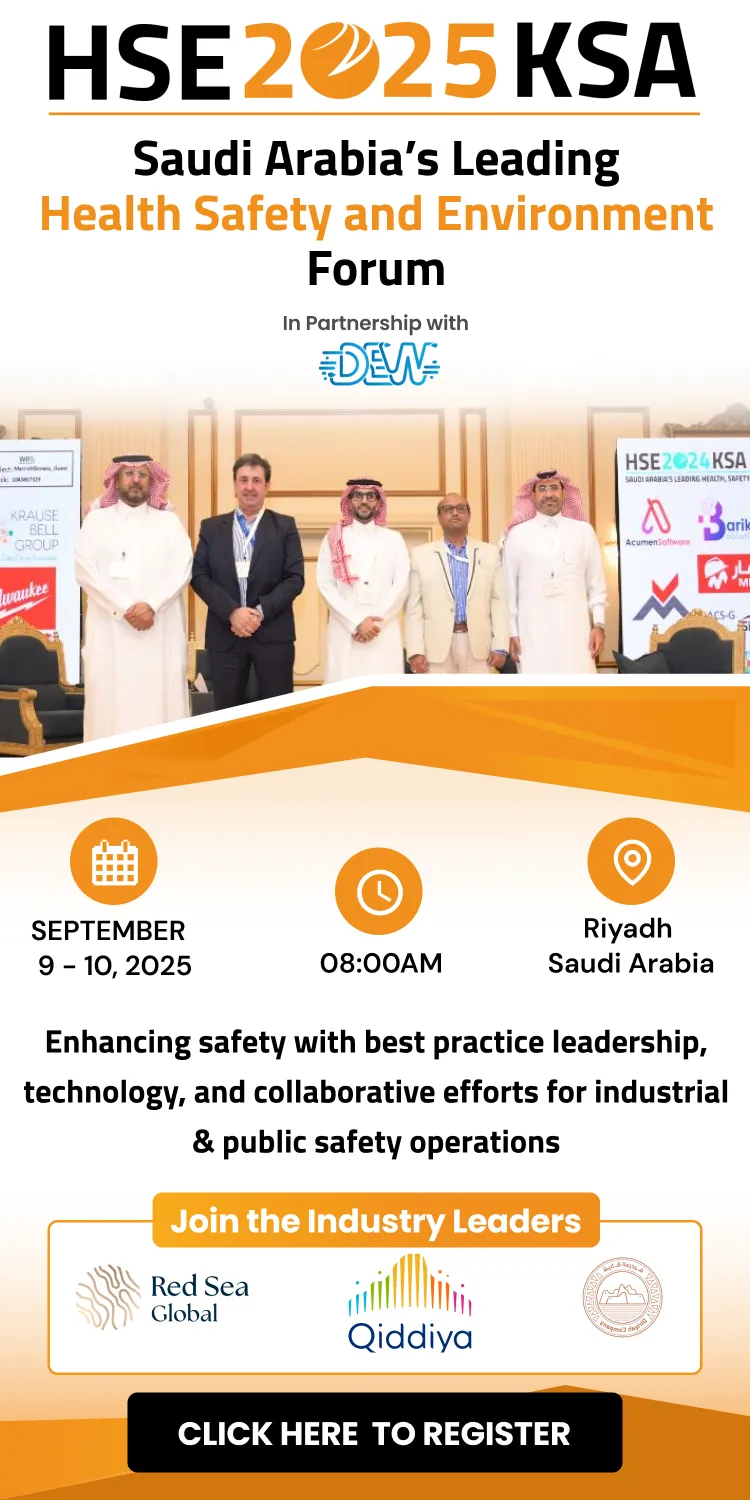At the HSE UAE Forum 2021, Dr. Waddah S Ghanem Al Hashmi, Honorary Chairman of the Energy Institute (EI) Middle East, will be presenting on Process Safety Management (PSM) and human factors. He sat down with HSSRME to provide a brief introduction to this subject
Dr. Waddah began by addressing the area of human factors, outlining that the knowledge base on this subject, primarily in the last two decades, had been constructed from years of dedicated ergonomic experts from a variety of backgrounds as a result of studying workplace incidents and case study reviews.
Dr Waddah commented, “This research found that most incidents are rooted in some form of human error, whether this was a lapse of human judgement, a lack of training or pressure; there are many reasons. Human factors, and the study of this subject, fall into four categories to reduce incidents. These are; (i) reducing human error by understanding the route causes of incidents, addressing the design and process equipment and how people interact; (ii) addressing human factors in design itself, which is more about human-machine interface and how human beings react with the systems they are using; (iii) human factors in organisational performance which is the consideration of factors that impact on human performance (such as stress or fatigue); and finally (iv), human factors in general, such as enhancing human performance and how you address that. This can be the engagement of training, stress management, leadership, improving competencies so people do not make as many errors.”
The Covid-19 pandemic has brought on a new wave of human factors which have had to be considered, as Dr. Waddah explained, “The issues where this has been most impactful were stress levels with people being worried about loved ones and generally a reduction in social activities. Lockdowns have been very unnatural as we are ultimately very social creatures, and a lot of mental health issues have come out as a result. But I think there is a lot that can be learnt from the pandemic, for instance from a health perspective people have become more aware of staying safe and the importance of personal hygiene, which is a big positive.”
Process Safety Management
Dr. Waddah then discussed the EI's framework for PSM which has been created to provide a common understanding of requirements for all employees of an organisation at every level. Incorporating the knowledge and expertise of EI Technical Partners, representing energy and oil & gas sectors around the world, the framework is split into four focus areas (leadership, risk assessment, risk management and review & improvement) with 20+ elements for each area, including expectations and guidelines to ensure each stage is achievable.
Dr Waddah said, “There are many PSM frameworks and models in this global industry, but the others are more regulatory frameworks. The EI PSM outlines the elements and provides a set of expectations to meet the element requirements. The guidelines that we produce help with meeting these expectations; there are guidelines on how to manage change effectively or how to do contract management selection for example. For each expectation we are also trying to develop publications that can help engineers manage PSM.”
“James Reason gave the Swiss cheese analogy where you have a trajectory of an accident and then you have separate barriers (the slices of cheese). The holes in the cheese equate to the inefficiencies in the barriers and, if you have enough, and they line up, you can get an accident. The idea of the elements is to ensure all these barriers are in place and that is why the PSM system should be applied holistically and all the elements need to be applied," Dr Waddah added.
The full interview including Dr Waddah’s comments on new technological advances developing PSM and his thoughts on the energy transition will be published in Health, Safety & Security Review Middle East, Issue 1 2021.
The HSE UAE Forum 2021 takes place on 6-7 April. For more information and to register, click here.





